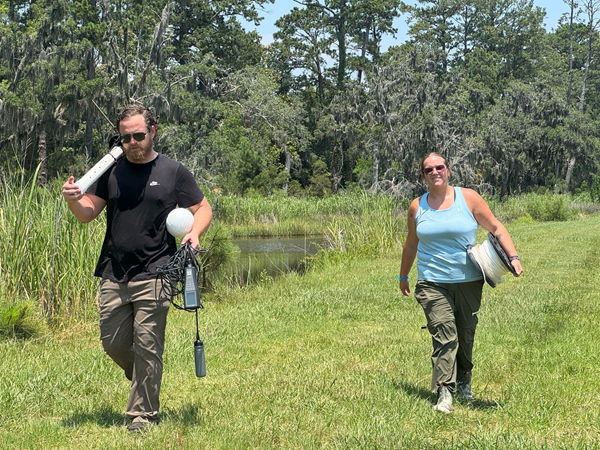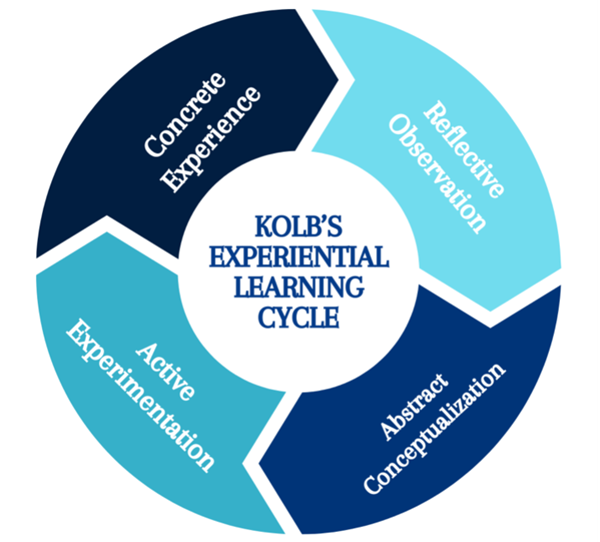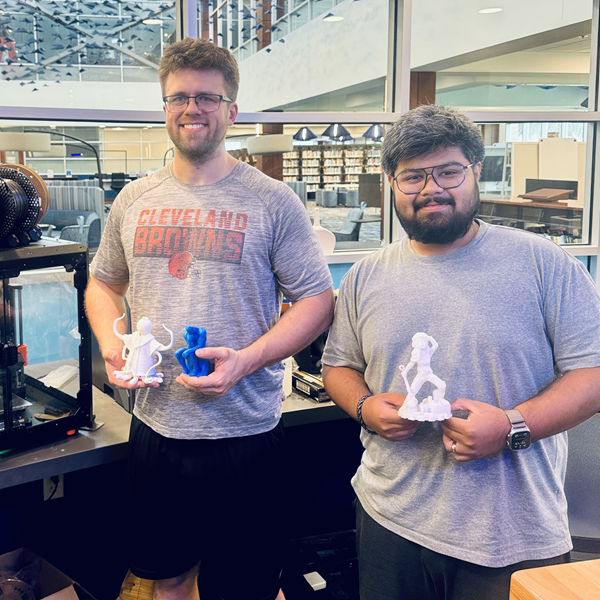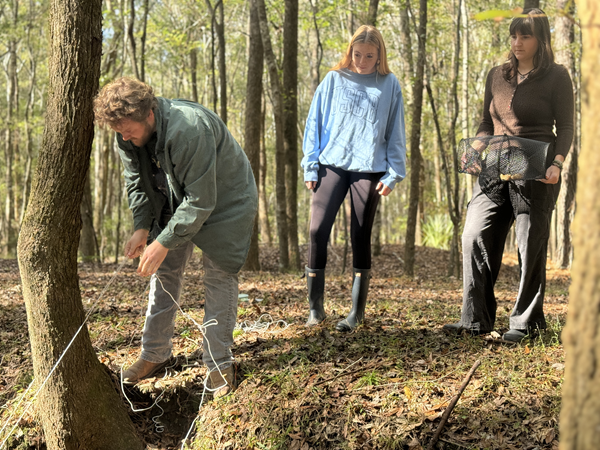USCB Specializes in Hands-On Learning

At USCB, students don’t just study concepts—they live them. Through experiential learning, USCB students in all disciplines build skills and confidence to thrive in their careers and communities.
The university framework around experiential learning is informed by the work of David Kolb (1984) who describes it in this way… “learning is the process whereby knowledge is created through the transformation of experience” (p. 38). Kolb (1984) further describes the experiential learning cycle that incorporates 4 stages.

Stage 1 “Concrete Experience”– introducing new experience or situation, or new approach to an experience or situation.
Stage 2 “Reflective Observation of the New Experience” – reflecting on the new experience in the light of existing knowledge and challenges current understanding.
Stage 3 “Abstract Conceptualization” – spending time reflecting generates new ideas or approaches to the experience.
Stage 4 “Active Experimentation” – new ideas and approaches leads to experimentation and applying them to the world around them to see what happens.
For experiential learning to transform learning, students need to engage in all four stages of the process. This promotes deeper learning and enhances critical thinking leading to better academic outcomes.
At USCB, students have a myriad of ways to engage in experiential learning, in and outside the classroom. While many opportunities are associated courses offering college credit, it is important to recognize experiential learning may also occur without college credit. Experiential learning may occur in the classroom, the community, or the workplace.
The goal of the experience is for the student to be immersed in their learning for an extended period and move through all 4 stages as described by Kolb (1984).
Partners in Experiential Learning
- Academic Programs
- Career Services
- Student Life
- Regional Employers
- Community Organizations
Experiential Learning Opportunities at USCB
- Capstone Course
- Practica
- Internships
- Cooperative Education
- Field Work
- Clinical Courses
- Project-Based Learning
- Undergraduate Research
- Fellowships
- Study Abroad / Study Away
- Service Learning
- Volunteering
When designing experiential learning, the 8 Principles of Good Practice, established by the Society for Experiential Education, guide the design process.
USCB Experiential Learning Opportunities Include:

- Makerspace
A creative, cross-disciplinary workspace equipped with 3D printers, laser cutters, and design tools. Students bring their ideas to life through prototyping, fabrication, and collaboration. - Teaching Greenhouse
Future science teachers raise seedlings for classroom use, and students grow tree saplings for USCB's campus tree-planting events. The greenhouse supports hands-on learning in biology, sustainability, and education.

- Living Laboratory Nature Trail
Located on the Bluffton campus, this trail follows a historic railroad bed and offers an immersive setting for studying ecology, biodiversity, and conservation through fieldwork and direct observation. - Nursing Simulation Centers
On both the Bluffton and Beaufort campuses, high-fidelity mannequins and realistic clinical scenarios give nursing students a safe environment to practice procedures and build confidence before entering clinical settings. - Internships
Students in every major are encouraged to pursue internships, and USCB faculty work actively to connect students with opportunities that match their academic and career goals.